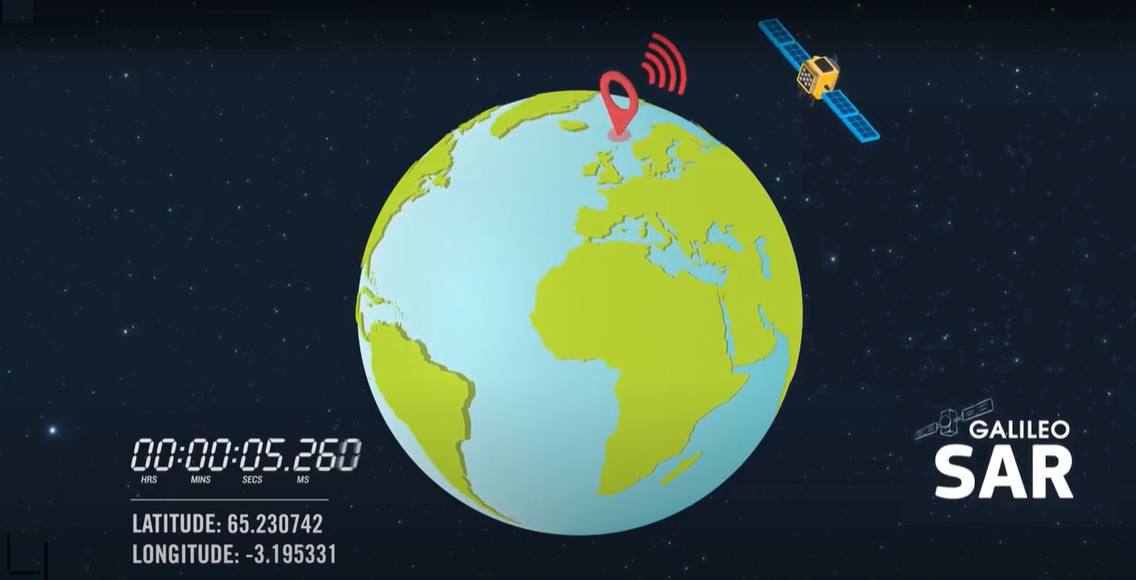


On October 27th the Galileo Information Center for Mexico, Central America and the Caribbean organized an informative session about Galileo’s SAR service for Search and Rescue teams from 15 countries. This online talk, given by Jose Luis Martin (GSC – GNSS Service Centre) was held in parallel and to complement one of the topics included in the Search and Rescue Operations Management course (2022) organized by Enrique Martin from the Humboldt Rescue Organization of Venezuela. The center also gave a talk about Copernicus, another European space program, on November 3, given by Teresa Martinez, EUSPA consultor, within the scope of the same course.
Among attendees were representatives of the Red Cross, Firefighters, Mountain Guides, Coast Guards, Air Force, Navy and Air Police Service from a variety of countries: Argentina, Bolivia, Chile, Colombia, Costa Rica, Ecuador, Spain, Guatemala, Honduras, Mexico, Panama, Paraguay, Peru, Uruguay and Venezuela.
Another informative session about the SAR service was given by the GIC on November 10, online, in the conference room of the INEA (National Institute of Aquatic Spaces) in Caracas, as part of the actions of the “Integrated Management System for the Safety of Life at Sea”. This talk could be organized thanks to the efforts of Juan Cardenas, representative of the Let Aircraft Factory and the LIAZ Drone Factory both from Czech Republic. Among those attending this event were the Vice Minister of Aquatic Means, the Vice Minister of Risk Management and Civil Protection, the General Director of the Command, Control and Telecommunications Centers VEN 911, the Commander of the Coast Guard, the General Commander of the Marine Firefighters and the Manager of SAR Aéreo.

The main objective of the talks was to familiarize the rescue teams with the Galileo SAR service. Global Search and Rescue (SAR) operations quickly locate and assist people lost in hostile environments (sea, jungle…). The SAR/Galileo service, launched on December 15, 2016 as part of Galileo’s initial services, contributes to these life-saving efforts by rapidly transmitting radio beacon distress signals to SAR crews using payloads aboard Galileo satellites.
On January 21, 2020, the SAR/Galileo Return Link Service (RLS) was declared operational. Galileo now not only locates people in distress and makes their position known to the relevant authorities, but SAR/Galileo RLS provides an automatic acknowledgement message to the user informing them that their request for help has been received.

Participation in these events has allowed the GIC to promote European satellite navigation systems (EGNSS) and to give it high visibility to the public in the region who will be watching the events to come. By participating in this meeting, the GIC provided the public with first-hand technical information on one of the European Union’s flagship programs: the Galileo program and its SAR service.
| Cookie | Duration | Description |
|---|---|---|
| cookielawinfo-checkbox-analytics | 11 months | This cookie is set by GDPR Cookie Consent plugin. The cookie is used to store the user consent for the cookies in the category "Analytics". |
| cookielawinfo-checkbox-functional | 11 months | The cookie is set by GDPR cookie consent to record the user consent for the cookies in the category "Functional". |
| cookielawinfo-checkbox-necessary | 11 months | This cookie is set by GDPR Cookie Consent plugin. The cookies is used to store the user consent for the cookies in the category "Necessary". |
| cookielawinfo-checkbox-others | 11 months | This cookie is set by GDPR Cookie Consent plugin. The cookie is used to store the user consent for the cookies in the category "Other. |
| cookielawinfo-checkbox-performance | 11 months | This cookie is set by GDPR Cookie Consent plugin. The cookie is used to store the user consent for the cookies in the category "Performance". |
| viewed_cookie_policy | 11 months | The cookie is set by the GDPR Cookie Consent plugin and is used to store whether or not user has consented to the use of cookies. It does not store any personal data. |